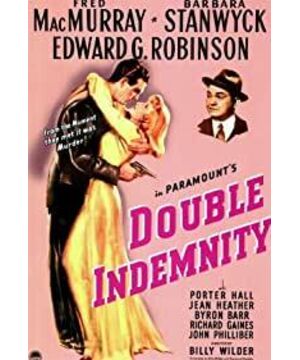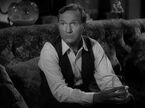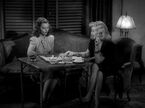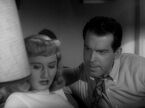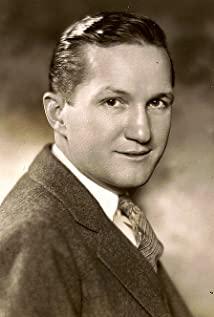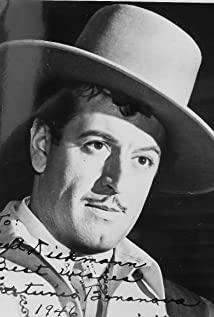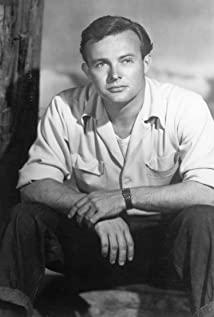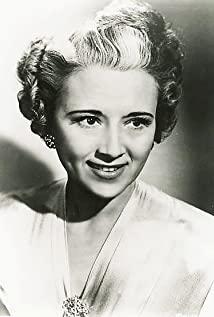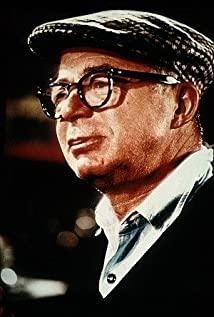It was only after reading the novel "Woman Under the Lake" that I remembered to tear down "Double Indemnity" casually today. The Woman at the Bottom of the Lake is a brilliant novel, and the villain-and-fallen-man model is reminiscent of Double Indemnity (although Raymond Chandler is not the author but the screenwriter). It's just that the heroine of "Woman Under the Lake" is probably more pure, and our depressed accomplice exudes a stronger sense of despair. Anyway, these men at the mercy of the wicked women consume more rye whiskey, and while our insurance salesmen are at war with each other, these depressed men have begun to contemplate ruining their own lives with disorder a lifetime. Such crude comparisons are certainly not kind, and they don't make a lot of sense, but I'd say it's these that instead remind me of that charming melancholy in Double Indemnity.
"Double Indemnity" has an air of eerie that is also extremely rare in film noir. A sense of absurdity unfolds in front of the audience like the gleaming wig and sunglasses worn by Barbara Steinwick, but it is difficult to find the source of the incongruity. Billy Wilder chose Barbara Stanwyck's sunglasses and wig to enhance the character's sense of incongruity in order to make Phyllis appear more pompous. But this kind of breath is not unique to the heroine Phyllis. The male protagonist Neff also has such contradictory characteristics. Walter Neff can even be regarded as a classical tragic protagonist in terms of character setting. He is cold and tough, lacks a clear desire for material things, and does not have enough interest in emotions. He is awake to all realities. He had seen through Phyllis's calculations at the beginning of everything, no matter how Phyllis offered him goodwill or rejected her. But at an accidental opportunity, he plunged into the gentle town of Phyllis, and completed the murder even though he knew he was being used. After ending his grievance with Phyllis, he prepared the gas chamber as if he was destined, explained the aftermath in an orderly manner, narrated the entire process of the murder, and prepared his final confession for the world in a decent manner. But the long foreshadowing suddenly dissipated after facing his boss, leaving only a person who woke up from self-intoxication and was overwhelmed.
Phyllis and Neve both retain the same sense of uncertainty. Phyllis the "wicked girl" opened her mouth after admitting, "I have never loved you nor anyone, and I'm rotten from the bottom of my body." The gunshot wounded Neff, and she then showed her intense love for Neff, declaring that she couldn't fire a second shot. Is it possible that what Phyllis said is true? We will never know the truth or falsehood of the last words of this woman who is full of lies, and what kind of feelings she has for Naif. However, Naif didn't eat this set, and the man who fell into narcissism had his destiny to face. In this situation, Yukio Mishima's sentence "A man passes a seed to a woman. Then he begins his long, indescribable journey of nothingness."
However, compared to Phyllis, Neff himself can even be regarded as a twisted set. We'll never know why he turned his back on his cold reason so suddenly and turned to Phyllis. Maybe it's the boredom of a life full of emptiness and meaninglessness? Or the love that may not exist for Phyllis? Or repressed same-sex love for his boss, Case, that will never be answered? The character of Naif has always been full of hesitation. I deeply doubt the actual effect of the tears of the deceased daughter on Naif. For a person who lacks a clear desire, the desire for justice and the pity for the weak are obviously both. is scarce. Rather than this, it is better to say that Naif needs to use this to complete the destruction of himself and Phyllis, in order to break the hesitation and stagnation. Ironically, however, Naif's intoxication shattered in the face of a lover with a same-sex vision.
Phyllis and Neff are probably the most delicate couple in the history of movies. Their relationship was full of suspicion and mistrust from beginning to end. Maybe they never showed any love for each other, but They have always maintained a subtle connection between them. There is a certain strong sense of loneliness implicit throughout the film, and it would be too imprudent to call the relationship between Phyllis and Neff love, but rather the resonance of two loners who are indifferent to the world.
However, "Double Indemnity" is an obscure and grim comedy after all. In the end, all the hallucinations created by the two loners for themselves are stripped away, leaving only Naif lying weakly in the sun, alone facing his original destiny. The tragic protagonist's gesture is an invitation to death.
View more about Double Indemnity reviews


